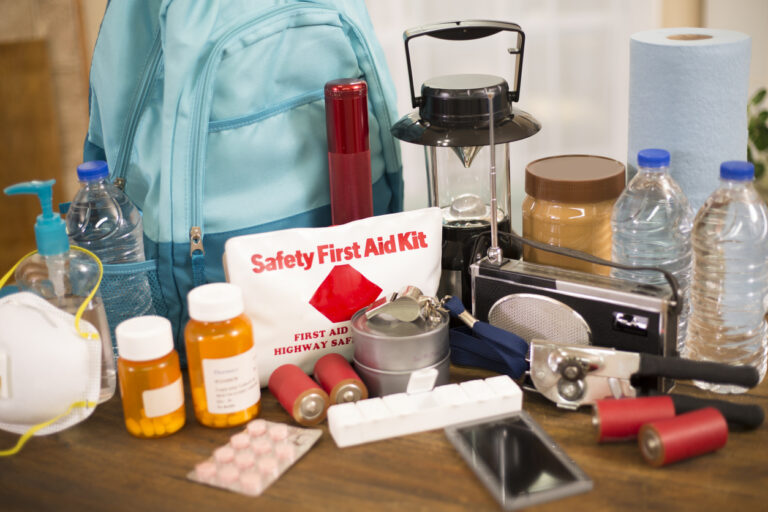If you’ve been on the island for any length of time, you’ll know that hurricane season can threaten the island each year from June to the end of November. To be organized ahead of any adverse weather, you’ll want to create a checklist of things you need to have on hand or do before disaster strikes. Here are a few top items to get you on your way…
Call your insurance provider—Make sure you have a policy in place and that it’s up to date before a hurricane. You’ll want to make sure you’re covered for home, business and property, as well as fire and flooding. Call your insurance agent in advance to set your mind at ease.
Have a list of numbers handy—Do you have a list of updated important numbers posted somewhere where everyone can read it? Make sure to have your relatives, neighbours, emergency services, BELCO and even the vet on that list. Let everyone in your family know where the numbers are posted for safety’s sake.
Check in on neighbours—Set aside some time to chat with your neighbours to see if there’s anything you can do to help. They might need lawn furniture put away before a storm or just feel more secure having your phone number on hand in case of emergency. Being neighbourly will help you feel better, too.
Have a plan to secure your possessions—You’ve called your insurance company, but do you know where to safely store your boat or car before a storm? Do you have a plan in place for your business and home? Create a safety plan and communicate with others in advance so they know what to do when a storm is approaching.
Talk to your family in advance about the plan—Will you shelter in place or evacuate? Depending on where you live and what’s best for your home or family, the answer may vary. Speak to your partner and children to discuss your options. Put a plan in place so everyone knows what will happen and how they will all stay safe. Anxious kids may even want to pack a small bag so they feel prepared if you’re deciding to evacuate.
Stock up on food—Get to the store and shop for the essentials. You will want to have three to seven days of food for each person in the family. Look for canned, nutritious foods like beans, tuna, veggies and soup, plus items like peanut butter, crackers, instant coffee, granola bars, protein bars and even comfort foods. Don’t forget about your pets! Be sure you have a hand-operated can opener, plastic cutlery, plates, garbage bags and antiseptic wipes to clean eating surfaces. Don’t forget to buy some fresh foods, too. Fruits like apples can last without refrigeration for several days.
Ensure you have safe drinking water—Experts suggest having three gallons of bottled water per person (and pet) on hand at home. You’ll need extra for any breastfeeding moms. Do the math and buy as many cases or jugs as you need. You’ll also need water for sanitation reasons, such as for washing hands and bathing. If you’re planning to buy water purification tablets or boil water in advance, make sure you have proper storage jugs that don’t leak, leach chemicals or decompose.
Check your first-aid kit—While you can always buy a ready-made first-aid kit, you likely already have several items at home. Check expiry dates on any over-the-counter medicines you might need. Make sure to add disposable gloves, gauze, tape, bandaids and antibiotic ointment to your kit, plus hand sanitizer and wipes.
Re-fill prescriptions—While you’re rummaging around your medicine cabinet, check to make sure your prescriptions are up-to-date. Refill medical prescriptions in advance to avoid running out.
Buy baby supplies—If you can’t get to a store for several days during a hurricane, do you have everything you need to get you through? Think diapers, wipes, ointments, bottles, formulas, soothers and any preferred drinks for dehydration. Do a wash in advance and have plenty of clean clothing, blankets and even toys handy for an emergency.
Take stock of your clothing—Put aside clean clothes for everyone in your family. Whether you’re staying at home or evacuating, you’ll want to make sure you and your family have extra clothes and even shoes in case you get wet, dirty or cold. Also be sure to include your favourite cozy sweaters and blankets to give you that feeling of security when you’re scared. While you’re putting clothes aside, be sure you have enough toiletries—things like tampons, toothpaste and deodorant—to last for several days.
Organize electronics and other essentials—Make sure your phones and extra battery packs are charged in case the power goes out. You’ll also want to ensure you have battery-powered radios and lamps as well as flashlights with fresh batteries. Put aside enough for everyone in your family so they can see safely in the dark. It would also be a good time to fill your car with gas and make sure it’s serviced.
Gather your cash and documents—Put all of your family’s important documents in a waterproof bag. This should include passports, banking information, credit cards, birth certificates, emergency medical information and cash. You might even want to store expensive jewellery or family keepsakes in a safety deposit box at your bank.
Think entertainment—When you’re confined to the house or sitting around in the dark, you and your family are likely to get bored. How will you pass the time? Put together an entertainment box that includes all your favourite ways to have some fun. Include board games, arts and craft supplies and a deck of cards. Involve your kids and make it a family experience.

